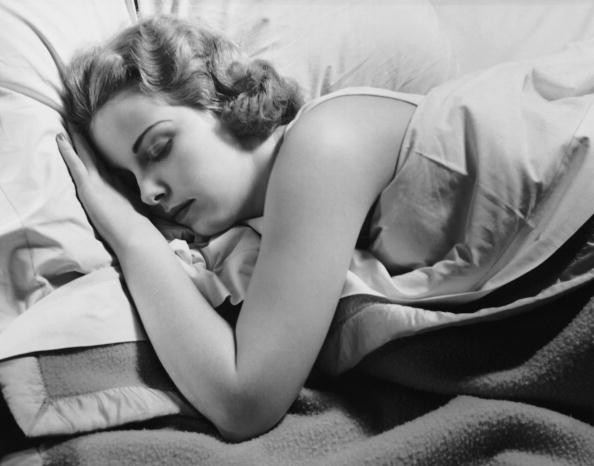
People who have sleep apnea are often prescribed the use of a machine to keep their airway open, but often can't wear the breathing mask all night. These patients may be helped by a device that keeps their lower jaw pushed forward, according to an analysis of previous studies.
Sleep apnea, which often involves snoring, is a common disorder that leads to short pauses in breathing during the night or periods of shallow breathing. The pauses in breathing can last several seconds or a few minutes. This causes poor sleep and leads to drowsiness during the day. Sleep apnea can be caused by such factors as obesity, enlarged tonsils, sinus problems, or gastroesophageal reflux.
Many people are prescribed the use of a machine called a continuous positive airway pressure (CPAP), which keeps the airway open with a stream of air so it cannot collapse during sleep. But some patients cannot tolerate wearing the mask all night long. The alternatives is a mandibular advancement devices (MAD), which pushes the lower jaw forward and holds it there, thus helping to keep the airway open.
Researchers in University Hospital in Zurich, Switzerland, analyzed data from 67 studies that included almost 6,900 patients. These studies evaluated CPAP and MAD for patients with sleep apnea to see how they compared in reducing sleepiness based on a standard measurement called the Epworth Sleepiness Scale (ESS), with higher scores meaning greater daytime sleepiness. People in the studies who used CPAP had typical ESS scores that were 2.5 points lower than people in control groups who did not, the analysis found. By comparison, people in the studies who got MAD had average ESS scores 1.7 points lower than control groups.
They found patients had a greater reduction in daytime sleepiness with CPAP than with MAD. But they also found that either option was effective enough that the choice of device could be left up to patients' individual preference.
"Most doctors still consider CPAP as first-line treatment for patients with obstructive sleep apnea," lead author Dr. Malcolm Kohler, chair of respiratory medicine at the University Hospital told Reuters Health by email. "If a patient cannot really use CPAP adequately e.g. only 2 to 4 hours per night, but does fine with a MAD which he can tolerate for 7 hours a night, then he should be treated with a MAD."



